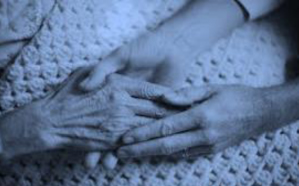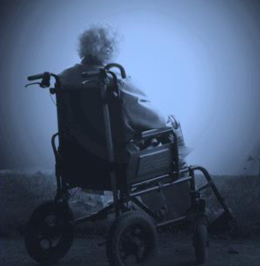Caregivers who are overwhelmed
In an ideal world family members would always take care of an aging loved one who requires assistance. Unfortunately, in this day and age, that just doesn’t happen as much as it should. Elder neglect, failure to fulfill a caretaking obligation, constitutes more than half of all reported cases of elder abuse. It can be intentional or unintentional, based on factors such as ignorance or denial that an elderly charge needs as much care as he or she does. Sometimes, neglect is simply a result of a caregiver becoming overwhelmed.
If you’re overwhelmed by the demands of caring for an elder, try the following:
- Request help, from friends, relatives, or local respite care agencies, so you can take a break, if only for a couple of hours.
- Find an adult day care program.
- Stay healthy and get medical care for yourself when necessary.
- Adopt stress reduction practices.
- Seek counseling for depression, which can lead to elder abuse.
- Find a support group for caregivers of the elderly.
- If you’re having problems with drug or alcohol abuse, get help.
Factors which increase the likelihood of neglect.
- Learning or memory problems.
- Long term condition, such as dementia, diabetes, paralysis, or stroke.
- No relatives or friends who can take care of her/him.
- 75 years of age or older.
- Difficulty getting along with others.
- The caregiver depends heavily on the elder for things such as money or housing.
- The caregiver drinks alcohol or uses illegal drugs.
- The caregiver has a personality disorder, depression, or another mental illness.
- The caregiver has a history of family violence, such as physical or sexual abuse.
- The caregiver has stress due to work, taking care of the elder, or financial problems.
Elder Self-Neglect and What Families Can Do?
Your important decisions deserve sound, competent legal advice.
Elder self neglect is the failure of a person to provide for his or her own needs because of an inability to do so. A survey conducted by the National Association of Professional Geriatric Care Managers finds that self-neglect among seniors is the most common form of non-financial elderly abuse/neglect encountered by care managers, far outpacing encounters with physical or sexual abuse or neglect by others.
Signs of self-neglect include:
1. Poor personal hygiene/not bathing or taking care of hair and nails;
2. Poor medication management or refusing to take medications;
3. Dehydration, malnutrition or other unattended health conditions, including bed sores;
4. Unsanitary or very unclean living quarters;
5. Unpaid bills, bounced checks or utility shut-offs;
6. Lack of adequate food in house or weight loss; and,
7. Inadequate or inappropriate clothing.
Self-determination.
Seniors have the right to make choices about these issues even when the decisions are poor ones. In other words, life style choices, whether you agree or not, are not sufficient to constitute self-neglect. Professionals have an ethical duty to respect autonomous decisions of competent adults.
Guardianship.
Guardianship may be appropriate when the poor decisions by a senior are the result of impaired judgment. A loved one suffering from dementia or mental illness may simply fail to comprehend the danger they are placing themselves in. Only persons who the court determines our incompetent, which requires medical documentation, may have a guardian appointed.
If you suspect that a senior or loved one has suffered from neglect, contact our Las Vegas Elder Law Attorneys at 702-798-4955 for a free consultation, or complete our online contact form.







